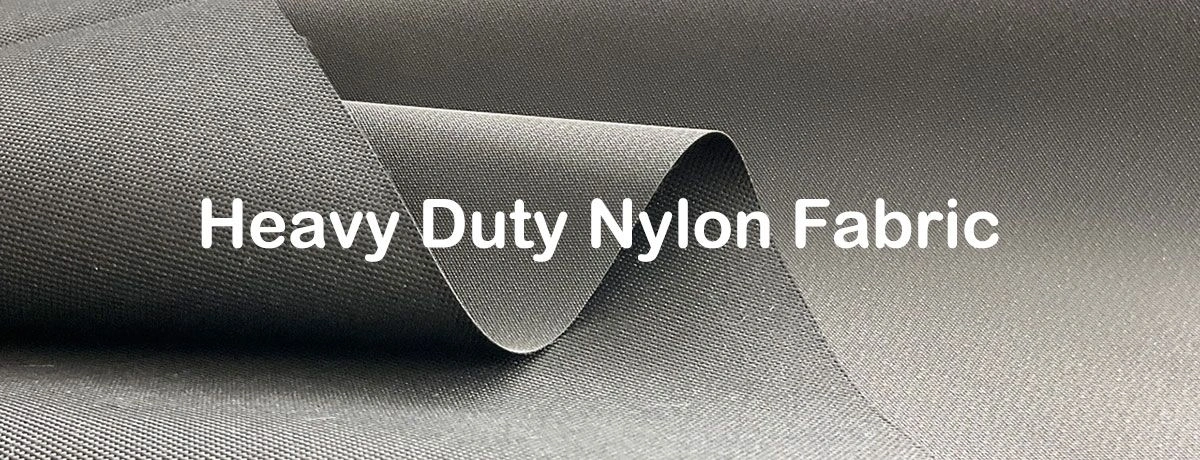What to Consider When Choosing Heavy Duty Nylon Fabric

What to Consider When Choosing Heavy Duty Nylon Fabric
1. Durability
How durable do you need it to be? Heavy duty nylon fabric, including ballistic nylon, comes in various weights and strengths, measured in denier (a unit of fiber thickness). Higher denier is thicker, stronger and for industrial use, lower denier is more flexible and lighter for clothing or lightweight outdoor gear.
-
For outdoor use like backpacks or tents, go for high denier nylon (500D or 1000D).
-
For apparel like jackets or activewear, lower denier nylon (40D to 70D) is the right balance of flexibility and strength.
When in doubt, check product specifications and confirm the denier to match your project’s durability needs.
2. Water Resistance vs. Waterproofing
Not all heavy duty nylon fabric is water resistant; some has water repellent finish, some is waterproof. Decide if your application needs basic water repellent or full waterproofing:
-
Water Repellent Fabrics: Treated with water resistant coating, repellent fabrics prevents moisture from penetrating to a certain extent. Good for items like jackets or bags that may get light rain.
-
Waterproof Fabrics: Fabrics with urethane coatings or laminated membranes are fully waterproof, good for tents, boat covers or outdoor tarps. Make sure to look for a fabric labeled ‘waterproof fabric’ and check its hydrostatic head rating—a key indicator of waterproof performance.
3. Abrasion
For applications that need tough materials like industrial equipment covers or military grade gear, abrasion resistance is a must. Fabric with smooth weave or added coatings can reduce wear and tear over time and extend the life of your products.
When comparing options, ask suppliers for abrasion test data. Fabrics for high friction environments like ripstop fabric often outperform standard nylon in durability tests.
4. Tear Resistance
If your fabric will be in high stress or heavy use, tear resistance is non negotiable. Ripstop nylon—a type of heavy duty nylon fabric with reinforced crosshatch pattern—has additional strength and prevents small tears from getting bigger. This is good for outdoor and industrial use like sails, tents and parachutes.
Make sure to check if the fabric you choose is tear resistant before buying.
5. Weight and Thickness
Weight and thickness affects performance, feel and usability. Heavier fabric (higher denier) is more durable, thinner is more flexible and comfortable.
Know your use case:
-
Thick heavy duty fabric is good for construction grade projects like awnings or heavy duty covers.
-
Lighter nylon fabric is good for garments, linings or smaller accessories.
You need to balance durability and usability for your design.
6. Additional Finishes and Coatings
Modern nylon fabrics goes through advanced treatments and coatings to enhance its functionality and some are designed for specific applications. Depending on your needs, you may want to consider:
-
Urethane Coating for waterproofing and added strength.
-
UV Protection for outdoor gear that will be exposed to direct sunlight, like canopies and umbrellas.
-
Anti-microbial Finishes for fabrics used in medical, fitness or hygiene products.
Talk to your supplier to ensure the fabric meets your project’s performance requirements.
7. Color and Aesthetic Options
Functionality is important but aesthetics should also match your brand. Heavy duty nylon fabric comes in a wide range of colors, patterns and textures. Military applications for example require camouflage patterns, while fashion oriented projects may prioritize intricate weave or glossy finish.
Make sure your supplier provides both practical and aesthetic options that meets your needs.
8. Eco-Friendly or Sustainable Options
With increasing consumer demand for sustainable materials, check if the nylon fabric is from recycled source or follows eco friendly production standards. Many manufacturers now offer eco friendly nylons so you can meet your sustainability goals while providing high quality products.
9. Supplier Reliability
Selecting a reliable supplier is as important as selecting the fabric itself. Look for suppliers who:
-
Have a history of delivering high quality nylon fabric.
-
Provide transparent material specifications and certifications.
-
Offer samples for testing before bulk orders.
Checking a supplier’s reliability will save you time, cost and potential quality issues later on.
Heavy Duty Nylon Fabric Applications
Here are some examples of projects to get you started:
-
Outdoor Gear: Backpacks, tents, camping gear, climbing harnesses.
-
Industrial: Heavy duty covers, conveyor belts and tool bags.
-
Fashion and Apparel: Jackets, sportswear and travel accessories.
-
Marine: Boat covers, sails and fishing nets.
-
Military and Tactical: Protective vests, tarps and parachutes.
With its versatility, heavy duty nylon fabric suits various industries and applications.
Make Better Choices
Choosing the right heavy duty nylon fabric is crucial for creating durable and high performing products. By considering durability, water resistance, tear resistance and supplier reliability, wholesalers and manufacturers can make informed decisions that meets functional and aesthetic requirements.
Need a supplier? Get in touch with us today to see our abrasion resistant, waterproof and tear resistant nylon fabrics. Our team will help you find the right one for your project.
